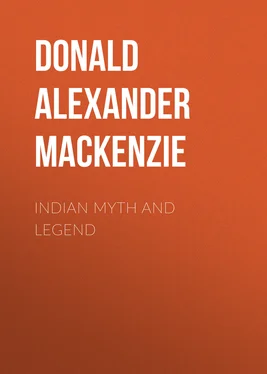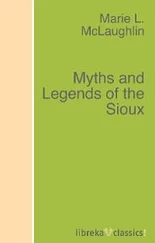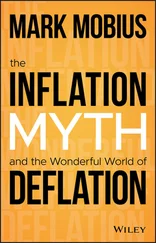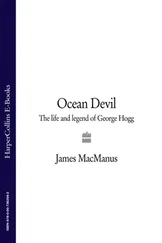Donald Alexander Mackenzie - Indian Myth and Legend
Здесь есть возможность читать онлайн «Donald Alexander Mackenzie - Indian Myth and Legend» — ознакомительный отрывок электронной книги совершенно бесплатно, а после прочтения отрывка купить полную версию. В некоторых случаях можно слушать аудио, скачать через торрент в формате fb2 и присутствует краткое содержание. Жанр: foreign_prose, foreign_religion, Философия, Мифы. Легенды. Эпос, foreign_psychology, foreign_antique, на английском языке. Описание произведения, (предисловие) а так же отзывы посетителей доступны на портале библиотеки ЛибКат.
- Название:Indian Myth and Legend
- Автор:
- Жанр:
- Год:неизвестен
- ISBN:нет данных
- Рейтинг книги:4 / 5. Голосов: 1
-
Избранное:Добавить в избранное
- Отзывы:
-
Ваша оценка:
- 80
- 1
- 2
- 3
- 4
- 5
Indian Myth and Legend: краткое содержание, описание и аннотация
Предлагаем к чтению аннотацию, описание, краткое содержание или предисловие (зависит от того, что написал сам автор книги «Indian Myth and Legend»). Если вы не нашли необходимую информацию о книге — напишите в комментариях, мы постараемся отыскать её.
Indian Myth and Legend — читать онлайн ознакомительный отрывок
Ниже представлен текст книги, разбитый по страницам. Система сохранения места последней прочитанной страницы, позволяет с удобством читать онлайн бесплатно книгу «Indian Myth and Legend», без необходимости каждый раз заново искать на чём Вы остановились. Поставьте закладку, и сможете в любой момент перейти на страницу, на которой закончили чтение.
Интервал:
Закладка:
Those who practised the cremation ceremony in early times appear to have conceived of an organized Hades, to which souls were transferred through the medium of fire, which drove away all spirits and demons who threatened mankind. Homer makes the haunting ghost of Patroklos exclaim, “Never again will I return from Hades when I have received my meed of fire”. 95The Vedic worshippers of Agni burned their dead for the same reason as did the ancient Greeks. “When the remains of the deceased have been placed on the funeral pile, and the process of cremation has commenced, Agni, the god of fire, is prayed not to scorch or consume the departed, not to tear asunder his skin or his limbs, but, after the flames have done their work, to convey to the fathers the mortal who has been presented to him as an offering. Leaving behind on earth all that is evil and imperfect, and proceeding by the paths which the fathers trod, invested with a lustre like that of the gods, it soars to the realms of eternal light in a car, or on wings, and recovers there its ancient body in a complete and glorified form; meets with the forefathers who are living in festivity with Yama; obtains from him, when recognized by him as one of his own, a delectable abode, and enters upon more perfect life, which is crowned with the fulfilment of all desires, is passed in the presence of the gods, and employed in the fulfilment of their pleasure.” 96
Agni is the god who is invoked by the other deities, “Make straight the pathways that lead to the gods; be kind to us, and carry the sacrifice for us”. 97
In this connection, however, Professor Macdonell says, “Some passages of the Rigveda distinguish the path of the fathers or dead ancestors from the path of the gods, doubtless because cremation appeared as a different process from sacrifice”. 98
It would appear that prior to the practice of cremation a belief in Paradise ultimately obtained: the dead walked on foot towards it. Yama, King of the Dead, was the first man. 99Like the Aryan pioneers who discovered the Punjab, he explored the hidden regions and discovered the road which became known as “the path of the fathers”.
To Yama, mighty king, be gifts and homage paid.
He was the first of men that died, the first to brave
Death's rapid rushing stream, the first to point the road
To heaven, and welcome others to that bright abode.
Professor Macdonell gives a new rendering of a Vedic hymn 101in which Yama is referred to as follows:
Him who along the mighty heights departed,
Him who searched and spied the path for many,
Son of Vivasvat, gatherer of the people,
Yama the king, with sacrifices worship.
Yama and his sister Yamí, the first human pair, are identical with the Persian Yima and Yimeh of Avestan literature; they are the primeval “twins”, the children of Vivasvat, or Vivasvant, in the Rigveda and of Vivahvant in the Avesta . Yama signifies twin, and Dr. Rendel Harris, in his researches on the Greek Dioscuri cult, shows that among early peoples the belief obtained widely that one of each pair of twins was believed to be a child of the sky. “This conjecture is borne out by the name of Yama's father (Vivasvant), which may well be a cult-epithet of the bright sky, ‘shining abroad’ (from the root vas , ‘to shine’)”.... In the Avesta ‘Yima, the bright’ is referred to: he is the Jamshid of Fitzgerald's Omar. 102
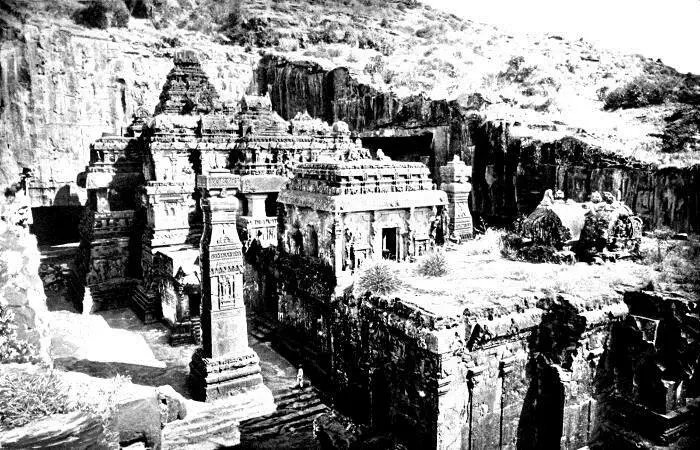
10
THE KAILASA TEMPLE OF SHIVA, ELLORA
Yima, the Iranian ruler of Paradise, is also identical with Mitra (Mithra), whose cult “obtained from 200-400 A.D. a world-wide diffusion in the Roman Empire, and came nearer to monotheism than the cult of any other god in paganism”. 103
Professor Moulton wonders if the Yama myth “owed anything to Babylon?” It is possible that the worshippers of Agni represented early Iranian beliefs, and that the worshippers of Mitra, Varuna, and the twins (Yama and Yima and the twin Aswins) were influenced by Babylonian mythology as a result of contact, and that these opposing sects were rivals in India in early Vedic times.
In one of the hymns 104Yami is the wooer of her brother Yama. She declares that they were at the beginning intended by the gods to be husband and wife, but Yama replies:
“Who has sure knowledge of that earliest day? Who has seen it with his eyes and can tell of it? Lofty is the law of Mitra and Varuna; how canst thou dare to speak as a temptress?”
Arnold's translation.In the Vedic “land of the fathers”, the shining Paradise, the two kings Varuna and Yama sit below a tree. Yama, a form of Mitra, plays on a flute and drinks Soma with the Celestials, because Soma gives immortality. He gathers his people to him as a shepherd gathers his flock: indeed he is called the “Noble Shepherd”. He gives to the faithful the draught of Soma; apparently unbelievers were destroyed or committed to a hell called Put. Yama's messengers were the pigeon and the owl; he had also two brindled watch-dogs, each with four eyes. The dead who had faithfully fulfilled religious ordinances were addressed:
Fear not to pass the guards—
The four-eyed brindled dogs—that watch for the departed.
Return unto thy home, O soul! Thy sin and shame
Leave thou behind on earth; assume a shining form—
Thine ancient shape—refined and from all taint set free.
Yama judged men as Dharma-rajah, “King of righteousness”; he was Pitripati, “lord of the fathers”; Samavurti, “the impartial judge”; Kritana, “the finisher”; Antaka, “he who ends life”; Samana, “the leveller”, &c.
In post-Vedic times he presided over a complicated system of Hells; he was Dandadhara, “the wielder of the rod or mace”. He had a noose with which to bind souls; he carried out the decrees of the gods, taking possession of souls at their appointed time.
In one of the Brahmanas death, or the soul which Death claims as his own, is “the man in the eye”. The reflection of a face in the pupil of the eye was regarded with great awe by the early folk; it was the spirit looking forth. We read, “Now that man in yonder orb (of the sun) and that man in the right eye truly are no other than Death; his feet have stuck fast in the heart, and having pulled them out, he comes forth; and when he comes forth then that man dies; whence they say of him who has passed away, ‘ he has been cut off ’ (life or life-string has been severed)”. 106
Yama might consent to prolong the life of one whose days had run out, on condition that another individual gave up part of his own life in compensation; he might even agree to restore a soul which he had bound to carry away, in response to the appeal of a mortal who had attained to great piety. The Vedic character of Yama survives sometimes in Epic narrative even after cremation had become general. The following two touching and beautiful stories, preserved in Mahabharata , are probably very ancient Aryan folk tales which were cherished by the people and retold by the poets, who attached to them later religious beliefs and practices.
Once upon a time Menaka, the beautiful Apsara (celestial fairy), who is without shame or pity, left beside a hermitage her new-born babe, the daughter of the King of Gandharvas (celestial elves). A pious Rishi, named Sthula-kesha, found the child and reared her. She was called Pramadarva, and grew to be the most beautiful and most pious of all young women. Ruru, the great grandson of Bhrigu, looked upon her with eyes of love, and at the request of his sire, Pramati, the virgin was betrothed to the young Brahman.
Читать дальшеИнтервал:
Закладка:
Похожие книги на «Indian Myth and Legend»
Представляем Вашему вниманию похожие книги на «Indian Myth and Legend» списком для выбора. Мы отобрали схожую по названию и смыслу литературу в надежде предоставить читателям больше вариантов отыскать новые, интересные, ещё непрочитанные произведения.
Обсуждение, отзывы о книге «Indian Myth and Legend» и просто собственные мнения читателей. Оставьте ваши комментарии, напишите, что Вы думаете о произведении, его смысле или главных героях. Укажите что конкретно понравилось, а что нет, и почему Вы так считаете.
